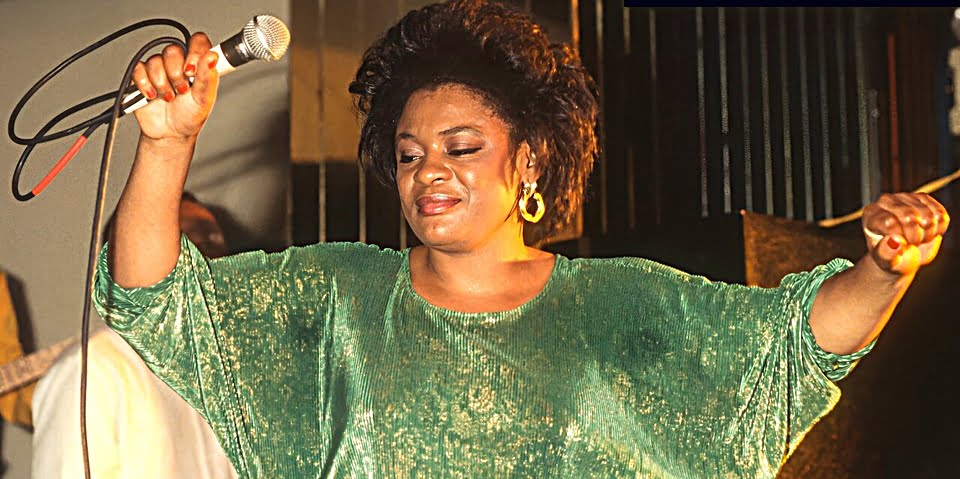
Women in Congolese Music: A Spotlight on Female Pioneers
The Underrated Role of Women in Congolese Music
While many of the most celebrated names in Congolese music are male—such as Franco Luambo Makiadi and Papa Wemba—women have played an equally vital role in shaping the genre’s history. From vocalists to composers, they have contributed to the richness and diversity of Congolese music, often bringing a unique emotional depth and perspective to the rhythms of Rumba, Soukous, and Ndombolo. However, their contributions have often been overshadowed by the male-dominated scene, making it essential to highlight their impact on the musical landscape.
Kallé’s Queen: Lucie Eyenga
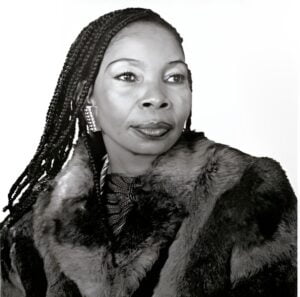
One of the first female artists to make a mark in the Congolese music scene was Lucie Eyenga. During the 1950s and 60s, Eyenga became a household name as a member of Joseph Kabasele’s band, African Jazz.
Her distinctive vocal style blended beautifully with the band’s instrumental melodies, and her contribution was key to the popularization of Rumba in the region. As a trailblazer, she opened the door for many female artists to come, proving that women could hold their own in an industry dominated by men.
Abeti Masikini: A Voice of Revolution
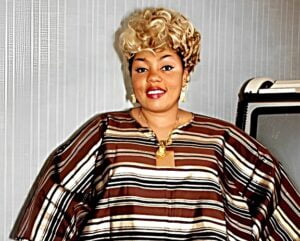
Abeti Masikini emerged in the 1970s as a symbol of female empowerment in Congolese music. Famed for her powerful voice, Masikini not only gained recognition for her music but also became an advocate for social change through her lyrics.
She incorporated themes of equality, love, and the struggles of women into her songs, giving her work a revolutionary edge. Masikini was one of the first African artists to perform in major international venues, breaking boundaries and setting a precedent for female artists on the global stage.
Tshala Muana: The Queen of Mutuashi
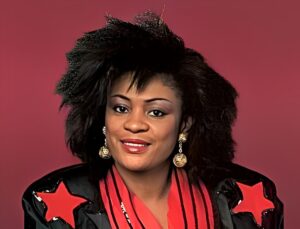
No discussion about Congolese female pioneers would be complete without mentioning Tshala Muana, often dubbed the “Queen of Mutuashi.” Hailing from the Kasai region, Tshala Muana popularized the Mutuashi dance style and used her music to celebrate Luba culture.
Known for her powerful stage presence and socially conscious lyrics, Tshala Muana tackled issues such as women’s rights, political corruption, and social inequality.
Her bold performances and unapologetic stance made her not only a musical icon but also a cultural activist. Her influence transcended Congolese borders, inspiring artists across Africa.
Mbilia Bel: The Queen of Rumba
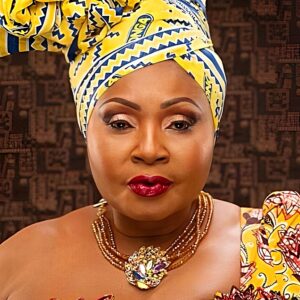
In the 1980s, Mbilia Bel became an international sensation and is often hailed as the Queen of Congolese Rumba. Her collaboration with Tabu Ley Rochereau catapulted her into the limelight, with hits like “Nadina” and “Eswi Yo Wapi” becoming instant classics.
Her charisma and vocal prowess made her a household name, and she remains one of the most influential female voices in Congolese music to this day.
Mbilia Bel’s ability to convey deep emotion in her songs has earned her enduring respect, both in Congo and worldwide.
Faya Tess: A Powerful Voice in Soukous
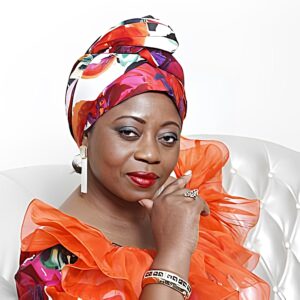
Faya Tess is another significant figure in the history of Congolese music. Gaining prominence in the 1980s and 90s, Tess was known for her collaborations with legendary artists like Franco and TPOK Jazz.
Her powerful voice and exceptional skill in Soukous helped cement her as one of the key female figures in Congolese music. Tess’s ability to hold her own in a male-dominated industry demonstrated her strength and talent, and she remains a respected name in the Congolese music scene today.
Mpongo Love: The Soulful Sensation
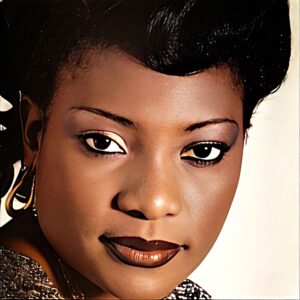
Mpongo Love brought a refreshing sound to the Congolese music scene in the late 1970s and early 80s. Known for her hauntingly beautiful voice and deeply emotional songs, Mpongo Love quickly became a beloved figure. Her hit song “Ndaya” was a groundbreaking success, exploring themes of love, heartbreak, and resilience.
Despite facing personal challenges, including a disability, Mpongo Love’s contribution to Rumba and Soukous left an indelible mark on the industry. Her music continues to be celebrated for its emotional depth and artistic richness.
Jolie Detta: A Voice of Elegance

Jolie Detta gained prominence during her time with the legendary band Zaïko Langa Langa. Known for her graceful stage presence and smooth vocal style, she quickly became one of the most admired female singers in the Congolese music scene.
Jolie Detta’s work with Zaïko helped elevate her career, showcasing her versatility and ability to thrive in a group that was known for its innovative sound. Her voice became a staple in the genre, earning her a place among the most respected female artists in Congolese music history.
Barbara Kanam: Carrying the Torch Forward

In more recent times, Barbara Kanam has carried forward the legacy of Congolese female artists. Known for her fusion of Rumba, Soukous, and contemporary African sounds, Kanam has carved a space for herself in the male-dominated Congolese music industry.
Her powerful voice and energetic performances have earned her numerous accolades, including international recognition. Kanam’s contributions continue to inspire a new generation of female artists, proving that the path paved by the likes of Eyenga and Mbilia Bel is still alive and thriving.
Yondo Sister: The Diva of Soukous

Yondo Sister brought a fresh, dynamic energy to Congolese music in the late 1980s and 90s. As a leading figure in the Soukous wave, she captivated audiences with her lively performances and catchy rhythms. Yondo Sister’s music, characterized by fast-paced beats and danceable tunes, demonstrated the versatility of Congolese women in different musical genres. Her influence can be seen in the popularity of Soukous, a genre that continues to dominate dancefloors across Africa.
Cindy Le Coeur: The Voice of a New Generation

Cindy Le Coeur, the protege of Koffi Olomide, is one of the most prominent contemporary female figures in Congolese music. As part of Quartier Latin, Cindy has showcased her vocal range and performance skills, proving herself a vital asset to the group.
Her rise to fame highlights the increasing visibility and acceptance of female artists in the Congolese music industry, and her performances are characterized by a blend of sensuality, strength, and passion.
Cindy Le Coeur’s journey reflects the evolving role of women in the industry, marking a shift towards greater recognition and respect for their talents.
Honoring the Legacy of Congolese Female Artists
The contribution of women to Congolese music is undeniable, yet it is often underrepresented in discussions about the genre’s history. Female artists like Lucie Eyenga, Abeti Masikini, Mbilia Bel, Tshala Muana, Mpongo Love, Jolie Detta, Faya Tess, Yondo Sister, and Cindy Le Coeur have paved the way for future generations, showing that women can be just as influential and innovative as their male counterparts.
Their legacy continues to shape the sound of Congolese music, bringing diverse stories, emotions, and experiences to life.
The Future of Women in Congolese Music
As the landscape of Congolese music continues to evolve, there is hope that the next generation of female artists will receive even greater recognition. Emerging talents are taking inspiration from pioneers like Mbilia Bel, Tshala Muana, and Yondo Sister, blending traditional Congolese rhythms with modern influences.
The future looks promising for women in Congolese music, with increasing opportunities for collaboration, innovation, and global reach. These female artists are not just performers—they are storytellers, cultural ambassadors, and pioneers in their own right.
Conclusion
Women in Congolese music have consistently broken barriers and defied norms, proving that their voices are indispensable to the genre’s evolution. While they may not always receive the same level of acclaim as their male counterparts, their contributions have shaped the sound of Congolese music for generations.
The pioneering efforts of these remarkable women will continue to inspire and influence the music scene for years to come.




Pingback: Lucie Eyenga: A Pioneer of African Rumba |